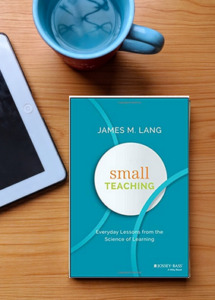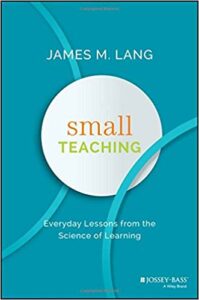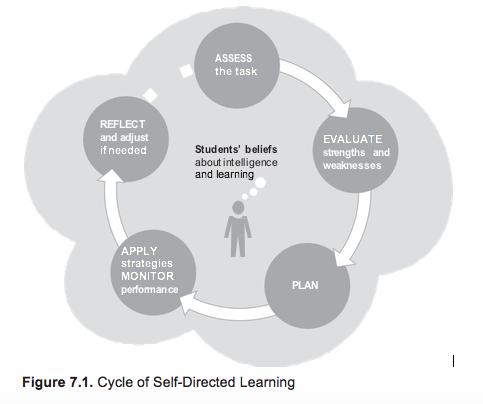Hello everyone! Welcome back to the beginning of a new year. We are pleased to be able to offer the The BCcampus Online Book Club again and to work with our BC post-secondary community volunteers to support this teaching and learning professional development opportunity.
The book we’ve selected is Small Teaching: Everyday Lessons from the Science of Learning by James M. Lang. A copy of Small Teaching should be easily available from most post-secondary teaching and learning centres or libraries, or you may purchase a copy. Whether you’ve read the book already, or are reading along for the first time…everyone is welcome! Join us and learn together over the next 10 weeks (September 9 – November 15). Share strategies on what “small teaching” you have tried in your current work, or plan to use in future with students. Ideas may be shared on social media and tagged #BookClubBC. Our twitter account is @BCcBookclub
Using the same organizing format for the Book Club as last year, our activities will centre around this blog site with the introduction of two new tools to support more community interaction in the form of facilitated online Chapter chats (Mattermost) and weekly webinar (Big Blue Button).
 As noted in the posted schedule, each week will have the following activities:
As noted in the posted schedule, each week will have the following activities:
- Featured blog posts published on https://twbccampusbookclub.opened.ca/ If you wish to participate by reading the weekly posts, we recommend you subscribe to the site so you don’t miss a post. This year we are lucky to have 9 amazing facilitators—one per Chapter of Small Teaching and the addition of one very special guest at one of our meetups!
- Facilitated online Chapter “chats” or online discussions will be another way for you to participate. See How to Participate.
- Facilitated live web conference meetups hosted by a facilitator. See How to Participate.
We have shared some technology tips for you on what to do to prep for participation.
Designed for maximum flexibility, the Book Club will allow you to participate as much, as little as you wish. It will be up to you. Registration is not required and the Book Club is free of charge. Our guiding principles for this learning opportunity remains the same as last year, and that is that it be open, easy to participate in, informal and fun!
Looking forward to another great year. Hope you will join us in our fall Book Club!
All the Best,
2019 BCcampus Book Club Facilitators

 All are welcome who are interested in teaching and learning, sharing ideas and exploring our Book Club as an informal and fun way for us to learn together and meet new people in our community.
All are welcome who are interested in teaching and learning, sharing ideas and exploring our Book Club as an informal and fun way for us to learn together and meet new people in our community.

